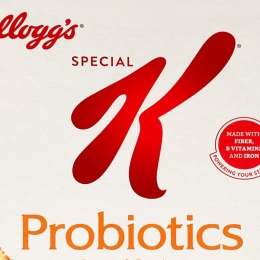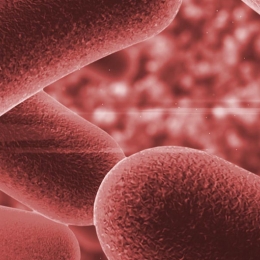Probiotics 101
“People think that probiotics are all effective for the same health issues,” says University of Washington probiotics researcher Lynne McFarland. “That’s not the case.”
But you’ll never hear that from some probiotic manufacturers, who are happy to have you believe that their products are good for whatever ails you.
Bug basics
Probiotics are “live microorganisms that, when administered in adequate amounts, confer a health benefit on the host,” notes the World Health Organization. The host? That would be you.
So the bacteria that are added to foods to ferment them—think sauerkraut, pickles, kombucha, and kimchi—are out because they have no proven health benefits. In are bacteria (or yeast) that, in scientific studies, help relieve diarrhea, irritable bowel syndrome, or other problems.
Most bacteria have a first, middle, and last name
The microbe in Dannon’s Activia yogurt, for example, is Bifidobacterium (the genus) lactis (the species) DN-173 010 (the strain). All three parts are important. Lactobacillus reuteri NCIMB 30242, for example, may lower cholesterol (modestly), while Lactobacillus reuteri RC-14 can help with vaginosis.
“Consumers seeking help for a particular health problem should look only for the specific strains that have been successfully tested for that condition,” says Mary Ellen Sanders, executive science officer for the International Scientific Association for Probiotics and Prebiotics (which includes both academic and industry scientists).
But that’s not easy, since the Food and Drug Administration doesn’t require companies to disclose which strains they use.
For example, we recently asked Stonyfield which strain of Lactobacillus rhamnosus it adds to its yogurt. The information is “proprietary,” a company representative e-mailed us.
When should you take a probiotic?
“The time to think about probiotics is when your gut bacteria has been disrupted—like when you take antibiotics, travel, or have a chronic condition like irritable bowel syndrome,” says McFarland.
What about taking them just to reinforce your normal intestinal bacteria?
For a start, new bacteria are unlikely to take up residence in your gut. “Your normal bacterial flora does a great job of keeping foreigners out,” says Sanders.
That doesn’t necessarily mean there’s no benefit. Even though the probiotics haven’t colonized your gut, “they may still prevent disease-causing bacteria from gaining a foothold in the intestinal tract,” notes McFarland. “Some also produce their own antibiotics to kill other bacteria, or they may prime our immune cells for defense against invaders.”
Even so, “we don’t have good evidence that probiotics do any good on a day-to-day basis for healthy adults,” she adds.
Looking for a probiotic?
Here are four things to consider:
- Find the strain for what you need.
- Follow storage instructions. Some probiotics need to be refrigerated; others don’t. As long as you follow the package directions, one is no better than the other.
- Check the expiration date. To increase your chances of getting the most live cells, look for probiotics that have months to go before their expiration date.
- Try foods or supplements. Either is fine, though supplements generally have higher concentrations of probiotics and are more stable.
Continue reading this article with a NutritionAction subscription
Already a subscriber? Log in
More on probiotics
5 things to know about probiotics hype

Probiotics for digestive woes

Why probiotics may not be harmless


